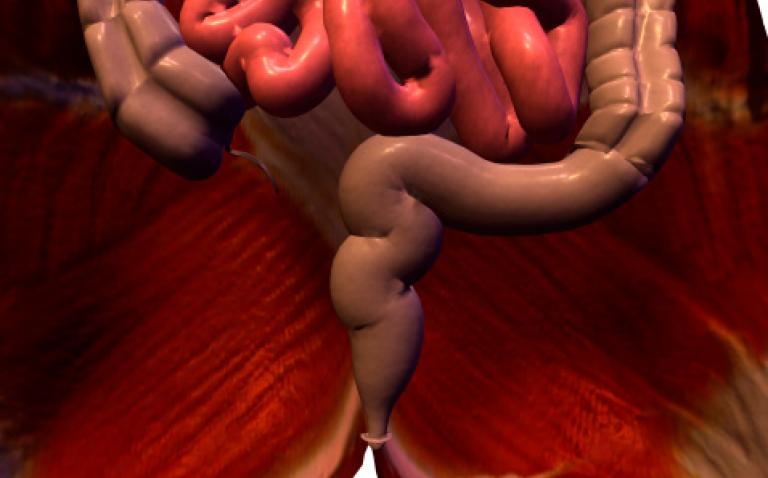A new report The Burden of Constipation in our Ageing Population – Working Towards Better Solutions uncovers for the first time, the true scale of the problem of chronic constipation in adults over the age of 65.
A group of experts has analysed all publicly available European evidence and the alarming results show how this condition is under-estimated, under-treated and overlooked.
The report reveals how chronic constipation, be it functional or secondary to identifiable causes, affects as much as 80% of the older adult population living in care homes and one in five adults aged over 65 years in the community.(1-3) If left untreated, it can result in serious medical consequences, such as faecal impaction, a condition where retention of solid faeces prevents normal evacuation. Faecal impaction can affect up to 50% of older adults in hospital wards or care homes and can lead to faecal incontinence.(4-6) The research included in the report clearly highlights how the absence of preventative strategies for constipation has a significant impact on quality of life of older people. It also illustrates the unnecessary ill-health caused through sub-optimal management of this condition and the clear unmet need to address this unacceptable problem.
The impact of constipation on quality of life is significant and comparable to that of more recognised conditions such as diabetes, osteoarthritis or osteoporosis in terms of physical and psychological impact.(7) Constipation not only results in a reduced quality of life of older adults, but is also associated with significant economic costs relating to nursing time, investigation, intervention, medication and on-going management by health and social services.(8-11) With the proportion of over-65s rising and estimated to reach 29.5% of the total population in the European Union by 2060, this situation is only set to get worse.(12)
The experts reached and issued a six key priority consensus with practical recommendations that they believe will make a positive and immediate difference to the way chronic constipation in older adults living in care homes or the community is diagnosed and treated:
1. Functional constipation should not be underestimated or trivialised and should not simply be considered as an inevitable consequence of ageing or frailty
2. Chronic constipation should be classified and recognised as a condition in its own right, not just a set of symptoms associated with other disorders
3. Recognition and awareness of the typical symptoms and causes of constipation, as well as understanding how to effectively prevent and treat it, should be a training priority across the whole multi-disciplinary team and for social care professionals working with older people
References
- Potter J and Wagg A, ‘Management of bowel problems in older people: an update’, Clin Med, 2005, vol. 5, no. 3, pp. 289-95.
- Talley N, ‘Definitions, epidemiology, and impact of chronic constipation’ Rev Gastroenterol Disord, 2004, 4 Suppl 2:S3-S10.
- Bosshard W, Dreher R, Schnegg J et al. ‘The treatment of chronic constipation in elderly people. An update’, Drugs Aging, 2004, vol. 21, no. 14, pp. 911-30.
- Barcelo M, Garcia-Sanchez R, Diaz-Rubio M, et al. ‘Prevalence of fecal impaction among residents in nursing homes in Spain and associated factors’, Gastroenterology, 2012, vol. 142, no. 5, pp. 445-46.
- Spinzi G, ‘Bowel care in the elderly’, Dig Dis, 2007, vol. 25, pp. 160-65.
- Stevens T, Soffer E and Palma R, ‘Fecal incontinence in elderly patients: Common, treatable, yet often undiagnosed’, Cleveland Clinic J Med, 2003, vol. 70, no. 5, pp. 441-8.
- Belsey J, Greenfield S, Candy D et al. ‘Systematic review: impact of constipation on quality of life in adults and children’, Aliment Pharmacol Ther, 2010, vol. 31, pp. 938-49.
- Norton C, ‘Constipation in older patients’, Brit J Nurs, 2006, vol. 15, no. 4, pp. 188-92.
- Addison R, Davies C, Haslam D et al. ‘A national audit of chronic constipation in the community’, Nursing Times, 2003, vol. 99, no. 11, pp. 34-35.
- Larkin P, Sykes N, Centeno C, et al. ‘The management of constipation in palliative care: clinical
- practice recommendations’ Palliat Med, 2008, vol. 22, no. 7, pp. 796-807. Hosia-Randell H, Suominen M, Muurinen S et al. ‘Use of laxatives among older nursing home residents in Helsinki, Finland’, Drugs Aging, 2007, vol. 24, no. 2, pp. 147-54.
- EUROSTAT European Commission, Population structure and ageing, 2012, retrieved 19 April 2013, http://epp.eurostat.ec.europa.eu/statistics_explained/index.php/Populati… ageing#Future_trends_in_population_ageing.










